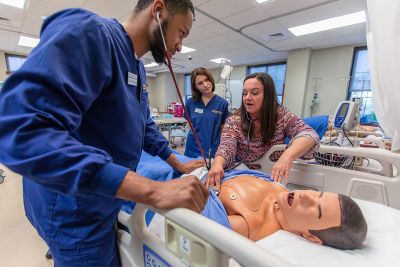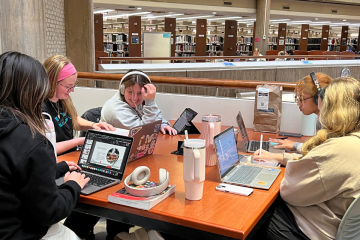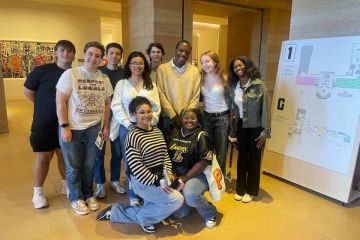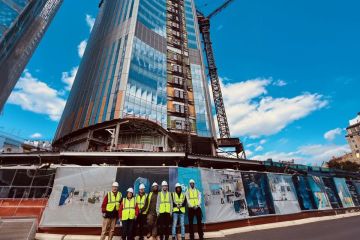New Simulation Lab is a Pathway to the Future of Nursing Education

Students in the School of Nursing have entered the next generation of advanced simulated learning with the new Anna Mosco and Marietta Borinski ’80 Simulation Laboratory.
The sim lab expands the Center for Simulation’s footprint and is designed to offer flexible simulated learning with the use of virtual reality, or VR, and haptics technology, which allows the user to interact with virtual objects and receive feedback in the virtual environment.
“Adding virtual reality to our learning spaces gives students an unparalleled advantage,” said Anne Krouse, dean of nursing. “Students can experience a variety of clinical experiences using an oculus headset and haptics and interact in the virtual health care world with real-time feedback.”
Simulated lab experiences give students access to clinical situations in a safe and controlled environment. Students can practice the necessary skills from assessment and charting to communication and problem-solving, all before stepping foot in a clinical setting. Incorporating VR learning capabilities in addition to the simulated life-like mannequins means students can be put in a diverse range of clinical scenarios, including scenarios they might not encounter while on clinical rotation.
The new lab, and its accompanying hospital beds, equipment, and technology, are made possible by a generous gift from Marietta Borinski, a 1980 nursing graduate, and her husband Michael, a 1982 business alumnus. As proud alumni, the Borinskis are committed to Widener’s mission to advance the student experience.
For Mike and Marietta, giving back means helping to shape innovative opportunities like they experienced as students.
Read Why They Give Back
For Marietta, this support was a meaningful way to give back to Widener nursing and contribute to the future of health care.
“To me, having this lab for students to learn the critical skills they need to know was the best thing I could do for Widener and for the students,” Marietta said.
Located on the second floor of Founders Hall, the lab also pays tribute to Marietta’s mother, Anna Mosco, a lifelong nurse who Marietta remembers for her impeccable nursing skills and unlimited capacity to care for others.
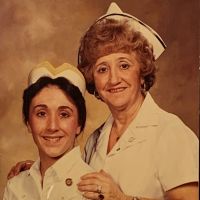
“Her clinical skills were amazing,” Marietta said, who explained that her mother was taught to assess patients often times without access to a stethoscope, much less computer or mechanized assistance.
“When my brothers and I were sick we always thought she was giving us was a hug, but no, she had her ear to our chest listening for breath sounds,” she added.
Known to family and friends as Annie, Mosco worked most of her career as a beloved school nurse and had a reputation of providing neighborhood first aid for anyone in need.
“Our back door was like a revolving urgent care unit. No matter if it was a tick or a broken leg, everyone would always say ‘let’s go to Annie’s,’” Marietta said.
Marietta shared in her mother’s calling to serve and heal others. After earning her undergraduate degree at Widener, Marietta worked as an oncology clinical nurse specialist practicing in large academic medical centers in Washington, D.C. and Philadelphia and was a member of the Oncology Nursing Society.
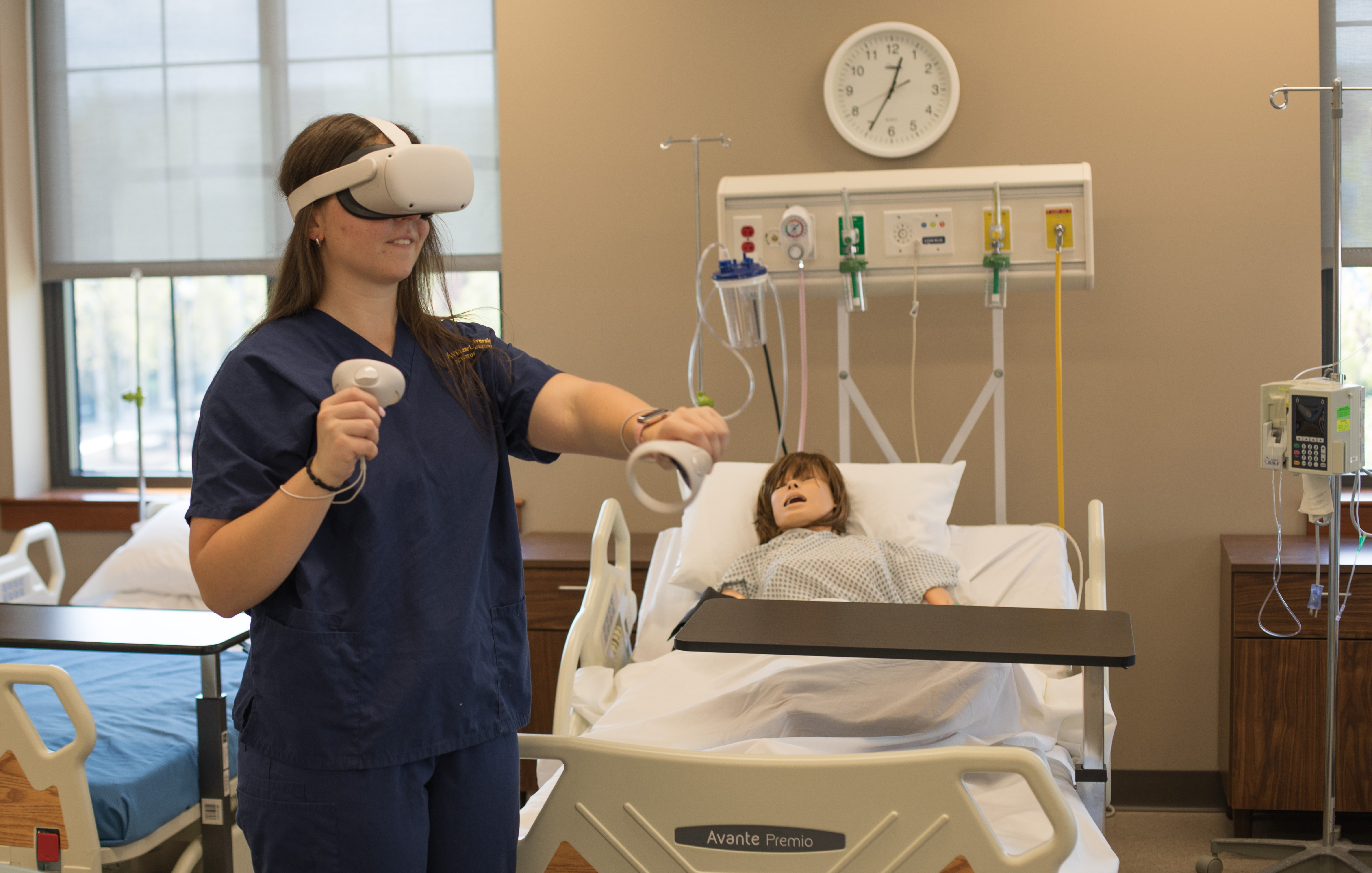
The Mosco and Borinski simulation lab is the latest example of how Widener prepares nurses to thrive in a high-demand and rapidly-evolving industry. Learning from the latest simulated technology is a transformational experience that instills confidence through experience, according to Lauren McCarthy ‘25.
“This space has been such an important part of my academic career because it taught me confidence before I had to look a real patient in the eyes,” said McCarthy.
“The simulation lab has seen me in my worst moments as a student, but it has been a place where I can learn from those mistakes before it is too late,” McCarthy added.
Giving students a safe and supportive space to practice, and fail, clinical skills positions students to succeed as soon as they enter the profession, and is at the core of Marietta’s vision.
“When students graduate, they know they can walk into a room and if a patient is crashing they're going to know what to do because more than likely they've seen it all in that lab,” Marietta said.
Current and future nursing students will learn vital skills in a fully-equipped space that bears two namesakes and represents both the evolution and future of nursing education.
At the dedication event in April, Marietta encouraged students to use the lab to its fullest extent and glean as much clinical exposure, both simulated and in-person, as possible before entering the workforce.
Marietta also left students with one request. While holding back tears, she asked that students think of nurses like her mom, who laid the foundation for the profession and demonstrated the meaning of compassionate, hands-on care.
“Next time you’re off to the sim lab for class or to study with a classmate say, ‘meet you at Annie’s,’” Marietta said. “I think she’d get a kick out of it.”

